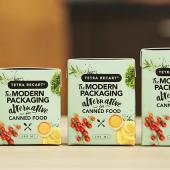Remember to pluck the chicken before you cook it
ot for one's own good but for the good of humanity, the people, the nation…» This challenging statement has been and is widely used to celebrate unconfessable interests and manipulate the economic, cultural and political needs that characterize the functioning of society.
In such cases it is as true as ever that "Pigs are frolicking in the dung", as Democritus judged and then, bluntly, did not fail to add: "True goodness is not the simple fact of not committing unjust things, but not even wanting to commit them.
Aware that unwanted advice is systematically ignored, I try, in this Italy of saints, navigators, heroes and... cooks, to get away from the chronicle of these painful days to try my hand at a more prosaic and what is more very tasty subject. Thus I turn to my bookshelf, seeking new appetizing suggestions in some cooking texts, with the result however - not without surprise – of finding myself back where I started. The ingredients are indeed many and varied, yet some "precepts" readily return to us intact, always ready for use (and I'm sorry, but in this case the packaging does not make much difference).
I was inspired by the "Divine Marchesi" who, in the introduction to his recipe for "Pink chicken livers in a terrine in their own butter", confesses that everything originated from a chance event, that is, from finding himself one day with his gaze stuck in the refrigerator and fifteen kilos of chicken livers begging for something to be done with them.
It follows that one does not always choose the context in which to operate and that it takes, in addition to Intelligence, also Perseverance, Flair and Imagination.
Jumping from one pole to another, Sora Lella reminds me that everything starts from knowing how to shop well and from the Passion one puts into cooking, because without Love one cannot cook. Head and heart must run in unison.
As well as Virtue "based on method, which etymologically means the right way to the goal", explains Alan Bay, and Cunning "which is to fly as one knows how to fly, without burning one's wings as happened to Icarus".
On the side, I find that there are also Praiseworthy Intentions, such as those of the mycologist, pharmacist, member of scientific academies and thoughtful philanthropist Clemente Rossi who, in defense of his work, writes: "Animals in the search for their food are guided only by instinct, while man is supported only by Reason (not for everyone, ed.), and this Reason wants to be educated by Science, advised by Experience and made strong and foresighted by Education.
There is no shortage, however, of those who do not give up on superlatives, of which we still have vivid experience today.
Ada Boni, in the preface to the 1939 edition of her beautiful book, claims that "our cuisine is second to none, and that our preparations, as much for variety of taste as for hygienic and nutritional value, can be found on the tables of the most refined gourmets". An Italy First ante litteram.
Fortunately, there are also those who, like Jeanne Carola Francesconi, in affirming the importance that certain traditional dishes have for the Neapolitans, do not shy away from recognizing the Arab and Greek, Spanish and French influences, giving due honor to a common Mediterranean Soul.
Stories of peoples and, speaking of us Italians, stories of families, as the ambassador of Vico Equense, Peppe Guida, well says: "We have a recent past of hard work and poverty. Popular cuisine has understood centuries in advance what chefs have come to understand only in recent times and that is that the Scraps, the leftovers, are real Ingredients and as such must be valued".
I will close this overview by trying to give a reason for the title of this editorial. Alfredo Morelli, in his tasty booklet, tells about a group of researchers at the University of California who, in order to overcome the problem of plucking chickens, a tiring and time consuming job, had the idea of selecting featherless animals.

The Experiment was successful, but the animals were cold and therefore they either died or ate too much, both in contrast with the laws of economy. No one admitted the Failure and, I read: "I am ready to bet that somewhere in the world a researcher is meditating on creating a chicken capable of making Cubic Eggs, much more convenient to box, transport and store in the refrigerator than the traditional and obsolete form".
You have all been warned!
Bibliography
- “La mia nuova grande cucina italiana” , Gualtiero Marchesi, Rizzoli Editore, 1980. The book opens with a reproduction of a lithograph by Enrico Baj depicting his idea of Apocalypse linked to the gastronomic world.
- “Sora Lella, la raccolta completa delle sue ricette”, Alberto Peruzzo Editore, 1993.
- “Cuochi si diventa”, Alan Bay, Giangiacomo Feltrinelli Editore, 2003.
- “Gastromicologia, ossia nozioni popolari sopra gran parte delle migliori specie di funghi mangerecci sul modo di cucinarli e conservarli, Milan 1888”*, reprint Società Agraria di Lombardia, 2008.
- “Il Talismano della Felicità”, Ada Boni, editore Colombo, 1939.
- “La cucina napoletana”, Jeanne Caròla Francesconi, Full reprint of the first edition of 1965, Grimaldi & C. Editori, 2010.
- “Questa terra è la mia terra”, Peppe Guida, Gambero Rosso, 2018.
- “Dal menù paleolitico al pollo futurista”, Alfredo Morelli, Chiriotti Editori, 1977.




















